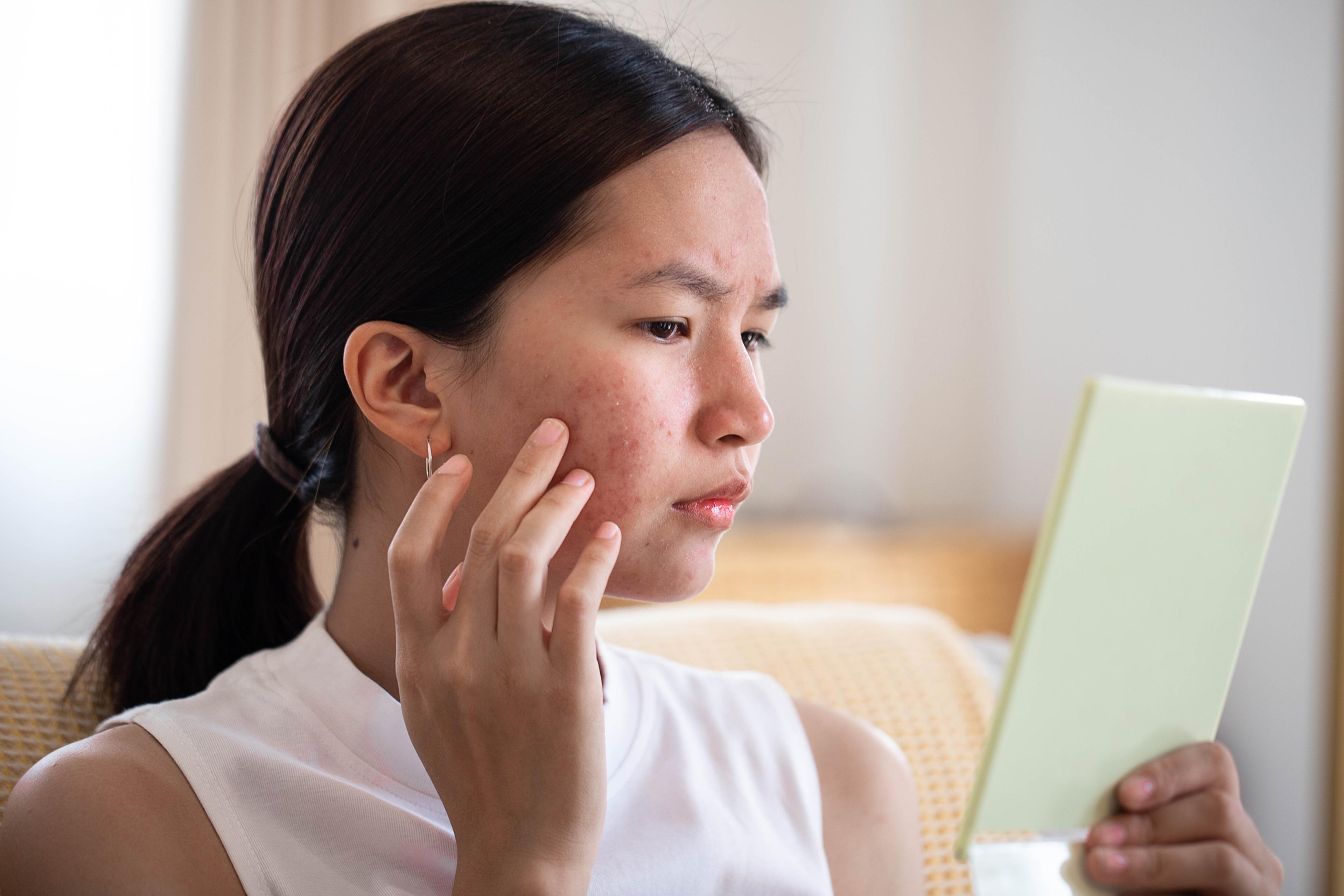What To Know About Products for Sensitive Skin

Isabella Cannon
| 4 min read
Isabella Cannon is a former Corporate Communications...

Sensitive skin is defined as a reaction triggered by contact with an environmental irritant that can cause symptoms such as burning, tingling, thickening, or dryness of the skin, according to the National Library of Medicine.
Skincare and cosmetics
Cosmetics are often the culprit of triggering a reaction in sensitive skin, especially in women, due to overuse and inappropriate use of products. The presence of potentially irritating substances in its composition such as alcohol or fragrances increases the possibility of symptoms, according to the National Library of Medicine.
As a general rule of thumb when shopping for skincare and cosmetics products, less is more. Using too many products, especially multiple anti-aging products, can irritate your skin, according to the American Acadamy of Dermatology. Avoid any ingredients that may irritate sensitive skin, like:
- Alcohols
- Fragrances
- Sulfates
- Preservatives
- Dyes
Moisturizer
It’s important to use lotions and moisturizers that not only contain quality ingredients but are formulated specifically for sensitive skin. Some skin-soothing ingredients include:
- Hyaluronic acid
- Ceramides
- Aloe vera
- Colloidal oatmeal
- Soy
Makeup
According to the American Academy of Dermatology, acne is the most common skin condition in the United States, affecting up to 50 million Americans annually. Since acne-prone skin is sensitive, people with acne may find that certain makeup products, such as foundations and concealers, worsen acne or cause new breakouts. When using makeup, try these safer practices:
- Choose makeup carefully: When selecting makeup, look for products that say “non-comedogenic” and “oil-free” to decrease the chance of clogged pores.
- Prep your skin:Before putting on makeup, start with a clean face and apply SPF 30 or higher to prevent sun damage.
- Use makeup applicators: Avoid applying your makeup with your fingers, which can transfer oil from your fingers to your face. When using an applicator like a brush, make sure you are washing it at least every 10 days with soap and water. Avoid sharing products and applicators with others.
- Remove your makeup before going to bed: Use an oil-free makeup remover, and then wash your face using a gentle cleanser. Avoid scrubbing your face, even when removing makeup.
Detergents
While laundry detergents make our clothes smell fresh, they sometimes irritate sensitive skin. The best laundry detergents for sensitive skin are typically the ones free of any scent or color-related additives, according to the American Acadamy of Dermatology.
When shopping, it might be helpful to look for laundry detergents that are plant-based or hypoallergenic. Twocommonly found substances to avoid in detergents are phthalates and triclosan, as they may cause allergic reactions to the skin.
- Phthalates are chemicals often used as solvents in detergents, cleaning products, clothing and cosmetic products such as hairspray and nail polish, according to the Centers for Disease Control.
- Triclosan is an ingredient commonly found in many consumer products, such as hand soaps and detergents, which reduces bacterial growth, according to the Food and Drug Administration.
Jewelry
According to a study in the National Library of Medicine, up to 17% of women and 3%of men are allergic to nickel, which is the metal found in most jewelry.8 While it’s possible to have an allergy to any metal, certain metals are far less likely to elicit hypersensitivity reactions:
- Platinum
- 14 or 18K gold
- Surgical stainless steel
- Titanium
- Niobium
If you know that you tend to react to certain metals, stay away from them. Plated jewelry is a way to get a high-end-looking piece of jewelry for less money, and it can also protect the skin from the elements it may be allergic to, like nickel. However, as the jewelry wears down, you can end up having a reaction to the inner components. While other metals are more expensive, they might be a safer option.
While a nickel allergy is often associated with jewelry, it can be found in many everyday items, such as coins, zippers, eyeglass frames, cosmetics, detergents, and even some electronics, including cellphones and laptops.
It's also common for belt buckles, bra hooks, and metal buttons, zippers and snaps to contain nickel. If your clothing has these, replace them with ones that are plastic or plastic-coated. You can create a barrier between these items and your skin by coating the items with clear nail polish. However, the nail polish will need to be re-applied often, according to the American Academy of Dermatology.
It may take repeated or prolonged exposure to items containing nickel to develop a nickel allergy. Treatments can reduce the symptoms of nickel allergy. According to the Mayo Clinic, if you have a minor reaction to nickel, or another mental found in your jewelry, you can wash the area with a gentle hypoallergenic soap or apply some low strength, over the counter hydrocortisone cream once or twice a day to relieve symptoms.
Image: Getty Images





